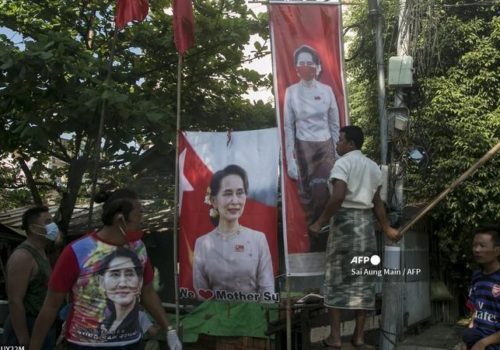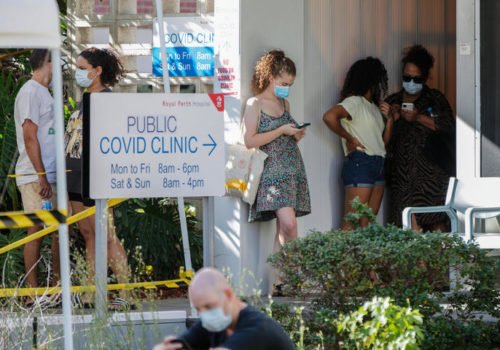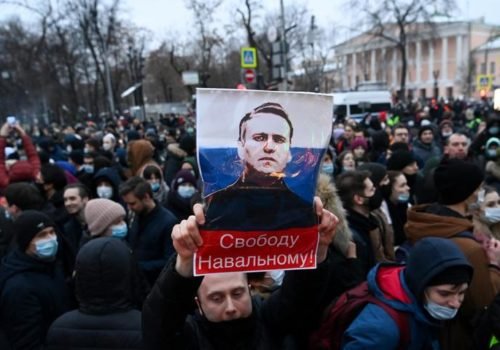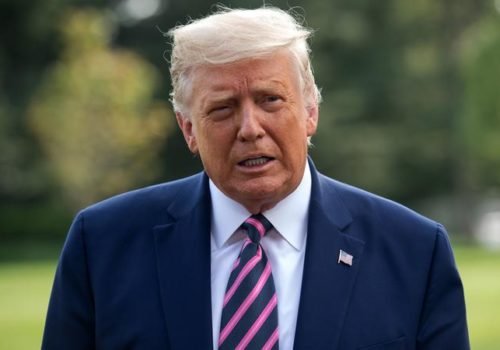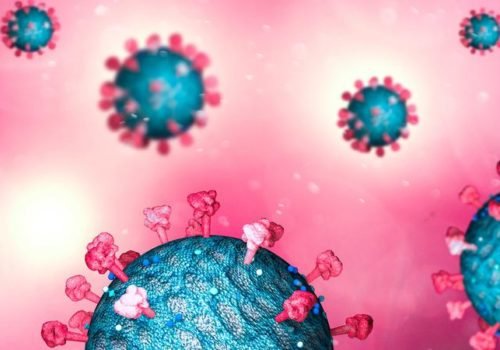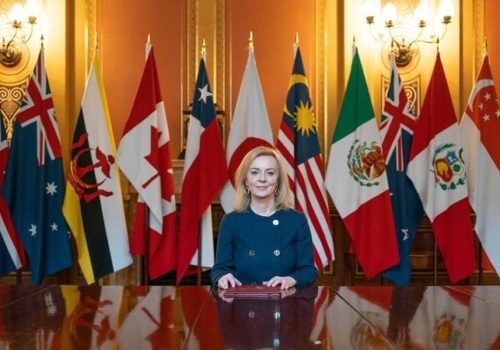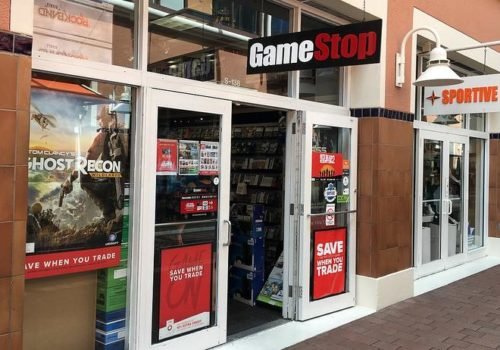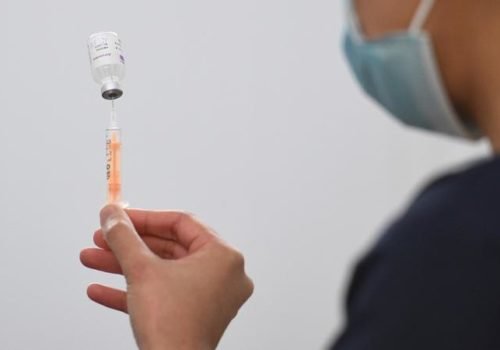Myanmar's Aung San Suu Kyi 'detained by military'
Aung San Suu Kyi, leader of Myanmar's governing National League for Democracy (NLD) party, has been arrested, the spokesman for the party said.
Supporters of the National League for Democracy (NLD) party stand with banners of Aung San Suu Kyi in November last year. Photo: AFP
It comes amid tensions between the civilian government and the military, stoking fears of a coup.
The NLD won enough seats in parliament to form a government in November, but the army says the vote was fraudulent.
The army has called on the government to postpone convening parliament, which was due to take place on Monday.
Spokesman Myo Nyunt told Reuters by phone that Suu Kyi, President Win Myint and other leaders had been "taken" in the early hours of the morning.
"I want to tell our people not to respond rashly and I want them to act according to the law," he said, adding he also expected to be detained.
The BBC's South East Asia correspondent, Jonathan Head, says there are soldiers on the streets of the capital, Naypyitaw, and the main city, Yangon.
Telephone and internet lines in Naypyitaw have been cut, the BBC's Burmese Service reports.
Soldiers also visited the homes of chief ministers in several regions and took them away, family members said.
On Saturday Myanmar's armed forces promised to abide by the constitution as concerns grew that they were preparing to stage a coup.
Who is Aung San Suu Kyi?
Aung San Suu Kyi is the daughter of Myanmar's independence hero, General Aung San. He was assassinated when she was only two years old, just before Myanmar gained independence from British colonial rule in 1948.
Suu Kyi was once seen as a beacon for human rights - a principled activist who gave up her freedom to challenge the ruthless army generals who ruled Myanmar for decades.
In 1991, she was awarded the Nobel Peace Prize, while still under house arrest, and hailed as "an outstanding example of the power of the powerless".
Suu Kyi spent nearly 15 years in detention between 1989 and 2010.
In November 2015 she led the National League for Democracy (NLD) to a landslide victory in Myanmar's first openly contested election for 25 years.
The Myanmar constitution forbids her from becoming president because she has children who are foreign nationals. But Suu Kyi, now 75, is widely seen as de facto leader.
But since becoming Myanmar's state counsellor, her leadership has been defined by the treatment of the country's mostly Muslim Rohingya minority.
In 2017 hundreds of thousands of Rohingya fled to neighbouring Bangladesh due to an army crackdown sparked by deadly attacks on police stations in Rakhine state.
Suu Kyi's former international supporters accused her of doing nothing to stop rape, murder and possible genocide by refusing to condemn the still powerful military or acknowledge accounts of atrocities.
A few initially argued that she was a pragmatic politician, trying to govern a multi-ethnic country with a complex history.
But her personal defence of the army's actions at the International Court of Justice hearing in 2019 in the Hague was seen as a new turning point that obliterated what little remained of her international reputation.
At home, however, "the Lady", as Ms Suu Kyi is known, remains wildly popular among the Buddhist majority who hold little sympathy for the Rohingya.
-BBC

